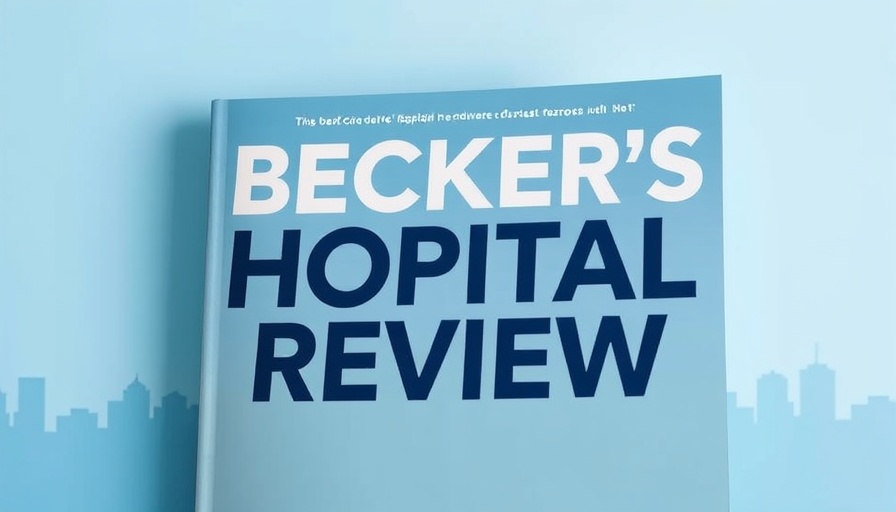
Innovating Healthcare: The Physician-Centric Approach
In the ever-evolving landscape of healthcare, the role of physicians as innovators has never been more crucial. At Henry Ford Innovations (HFI), this philosophy is not just a buzzword; it is deeply embedded in their operational model. Partnering physicians are viewed as integral pieces of a puzzle that, when connected, reveal sharper healthcare solutions that benefit both patients and providers.
The Unique Role of Physician Champions
Across more than 40 specialties, the Henry Ford Medical Group (HFMG) comprises over 1,900 physicians and researchers who are not just practitioners but also champions of innovation. This unique collaboration allows for feedback from the ground up, validating new ideas and ensuring they are applicable in real-world healthcare settings. HFI acknowledges how critical these 'physician champions' are in advancing the mission of improving patient care through innovation.
Learning from Failure: An Iterative Process
True innovation often involves trial and error. HFI's exploration of AI for cancer pathology exemplifies this well. Despite initial excitement among oncologists, a pilot study revealed deficiencies that prompted a pivot toward more promising initiatives. Such adaptability is the essence of innovation; it encapsulates the scientific method of iteration and refinement, facilitating a healthcare system that is responsive and effective.
Transformative Solutions in Action
Among the success stories, Dr. Annmarie Vilkins’ creation of LaparAssist stands out. This technology not only improves surgical teaching but also illustrates how innovation can arise directly from clinical challenges. By collaborating with biomedical engineering students and HFI, Dr. Vilkins developed a groundbreaking device that enhances surgical procedure communication while adhering to sterile conditions, demonstrating how innovative ideas can spark from real-world needs.
Addressing Social Determinants of Health with AI
Additionally, the collaboration between HFMG disease specialists and IT innovators led to an exploration of natural language processing (NLP), revealing crucial insights into the social determinants of health. This approach has illuminated barriers that many patients face, such as language difficulties and other socio-economic factors impacting care outcomes. By harnessing technology, healthcare providers can craft more effective, personalized patient engagement tools and support systems.
Looking Ahead: Future Innovations in Healthcare
As we venture into an era where remote therapeutic monitoring (RTM) and healthcare automation gain momentum, it becomes imperative for healthcare providers to stay informed about the latest technologies, such as voice AI agents and automated medical billing recovery. These innovations not only enhance operational efficiency but can also optimize practice revenue, further benefiting independent providers navigating a changing healthcare landscape.
Actionable Insights for Providers
The integration of innovative healthcare solutions is not just an option—it's becoming essential for survival in today's market. As independent and concierge medical providers, being aware of advancements in Medicare reimbursement and the benefits of practice automation opens doors for better patient care and financial sustainability. The focus on clinic cost savings through enhanced technology will allow small practices to not only survive but thrive.
Toward a Healthier Future
Embracing innovation leads to improved patient outcomes and operational efficiencies. By understanding the role of physicians in this endeavor, independent providers can more effectively engage with HFI and similar organizations to harness the power of collaborative health innovations. Through shared knowledge and tools, healthcare can transition toward being more inclusive and responsive to the needs of each patient.
Let’s work together to transform healthcare for all. Embrace innovation—it is your pathway to a brighter, healthier future!
 Add Row
Add Row  Add
Add 




Write A Comment